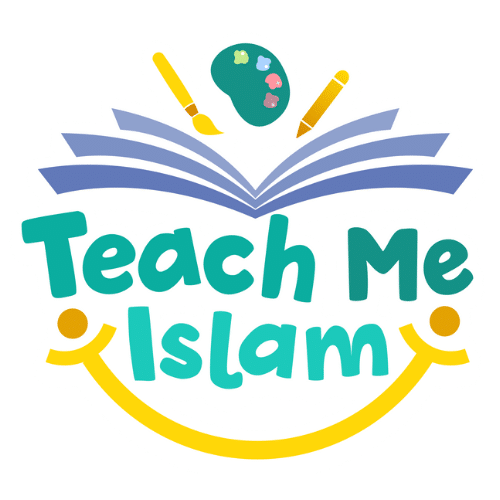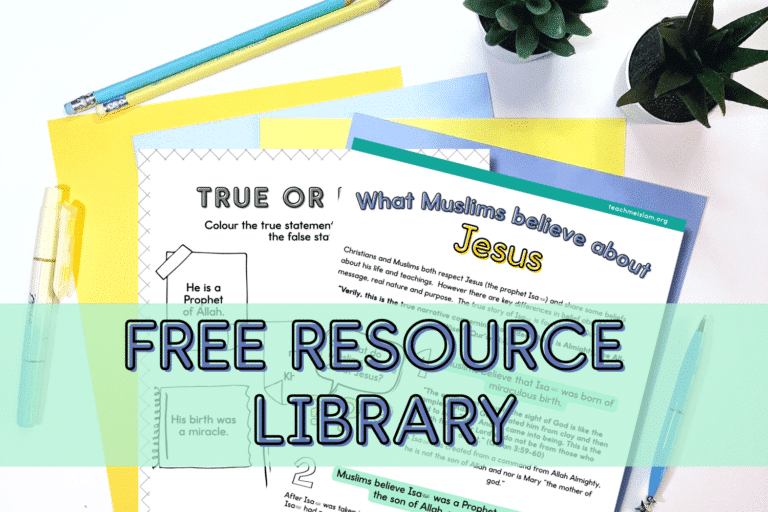There is a huge demand for Islamic comprehension passages amongst Muslim homeschoolers. It’s a commonly expressed concern amongst Muslim parents that the reading material their children encounter during English lessons is not beneficial and in lots of cases completely contrary to Islamic values. Alhamdulillah, Islamic comprehension passages offer a much better alternative. They allow parents to teach beneficial Islamic content while also meeting English learning objectives. There is not a huge range available online and parents can be daunted by the idea of creating their own. This blog post will show inshaAllah that it is simple and walk you through the process step-by-step inshaAllah.

Choose your topic for your Islamic comprehension passages
The first step is to choose the topic that you wish to teach. Do you want to teach about the seerah? Or perhaps stories of the prophets? Perhaps you are focusing on the time of the rightly-guided Caliphs? When you start with what you want to teach, then the text becomes the main focus, not the comprehension questions.
This is a great chance for homeschoolers to introduce Islamic content into English lessons and inject extra benefit. This text does not have to necessarily tie in exactly with what you are covering in your Islamic Studies lessons.

Research your learning objectives
Muslim homeschoolers really vary in their approaches, there is a broad spectrum from unschooling to a very structured approach. If you are looking for comprehension passages I am going to hazard a guess that you are at least loosely following a curriculum that aligns with your country’s education system. In the US for elementary schools they have the Common Core standards which are a set of learning goals for each grade level in math and English language arts that are adopted by the majority of the US states. In the UK, the National Curriculum publishes ‘programmes of study’ for each Key Stage which is broken down into year groups.
They are great for seeing what would be covered in a typical school textbook or classroom. You can then feel confident when designing your own Islamic Comprehension passages that you are meeting all the learning objectives for your child. The beauty of homeschooling is that your child can go at their pace. There is no need to stick to the expectations exactly, however, it is a great resource for when you begin to create the comprehension questions.
As a parent, you will have your own objectives that align with your homeschool approach. If you want to just create questions that you feel are suited to your child, that’s great. However if you would prefer to write questions that cover all the learning objectives of their grade/year level, then it is brilliant to be able to check.

Write your text with the learning objectives in mind
A reading passage designed for children to “describe the overall structure of a story, including describing how the beginning introduces the story and the ending concludes the action” is going to need a different structure to an informational text about the history of the Ka’bah for example.
You could write a reading passage in two very different styles according to the learning objectives. For example, if the topic was the hijrah of the Prophet(may Allah raise his rank and grant him peace) to Madinah, you could write it:
- As a story, telling the events in chronological order and including figurative language such as metaphors and similies.
- As a informational text, highlighting its significance as the beginning of the Islamic calendar, how surahs are often categorised by where they were revealed and how hijrah marked the beginning of the first Muslim state in Madinah.

Draft the questions that align with your Islamic comprehension passage
Once you have written your text with the learning objectives in mind, the questions should be fairly easy to create inshaAllah. It is good to have a mix of questions, short and long answers, identification of text features and reader-response. These will very much vary according to the age you are creating your Islamic Comprehension for. If you have several questions, it’s a great idea to spread them over several lessons and create multiple worksheets.
Examples of possible questions include…
- Find 3 adjectives/nouns/verbs/adverbs from the text.
- Underline a metaphor in the text.
- What does is the _______ compared to?
- What happens at the beginning?
- What was the problem that _______ faced?
- What caused ________ to happen?
- Compare _______ and ________ what makes them different?
- Do you think that _________ is honest? Why?
- Match the words with their definitions.
- Look at the following words in the text, name a synonym for each one.
- ___________ is a great example to Muslims. Why do you think so? What can you do to follow their example?
Alhamdulillah you have no created your own set of Islamic comprehension worksheets. Keep them safe to share with other children inshaAllah.
Edit the text
Sometimes when you create questions you realise that the text is missing a feature. For example, you may want your child to identify 3 adverbs but you realise that there are only 2 in the text. It’s a good idea to go back and edit the text once you have written the questions. It’s important to make sure that it is easy for your child to really understand the text and that the questions align well with the reading passage.

Add the honorifics
Islamic reading comprehension passages allow Muslim kids to practice saying the appropriate honorifics after names of the Companions (may Allah be pleased with them), Prophets (upon them be peace) and Allah (azza wa jaal). It can take time to add in each symbol but it is important and necessary. It takes practice for kids to get it right and you are providing them with a wonderful opportunity to do so.

Short-cut: Use child-friendly Islamic texts
Another option is to take a pre-prepared Islamic text and write questions for that. For example, you could use the 10 Promised Paradise series which included some simple questions and supplement them with questions of your own. A basic sheet asking kids to find different parts of speech from the text is an easy exercise that adds lots of value. This wouldn’t work for all of the types of questions you may want to ask but it is a great time-saving hack.
Short on time? Read-made Islamic comprehensions and reading passages available.
I hope you have found this post on how to create Islamic Comprehension passages helpful. If this seems like more than you can manage right now, done-for-you Islamic Comprehension passages are available on Etsy and TPT. One set is on the miracles of the Prophet (may Allah raise his rank and grant him peace) and the others are all on Child Companions of the Messenger (may Allah be pleased with them). If you would like to download the Miracle of Rain Islamic Comprehension for FREE resource then join the mailing list here to gain access to the free resource library.
Here are some other blog posts you may be interested in:
What are Islamic Comprehension Passages and why you should be using them






